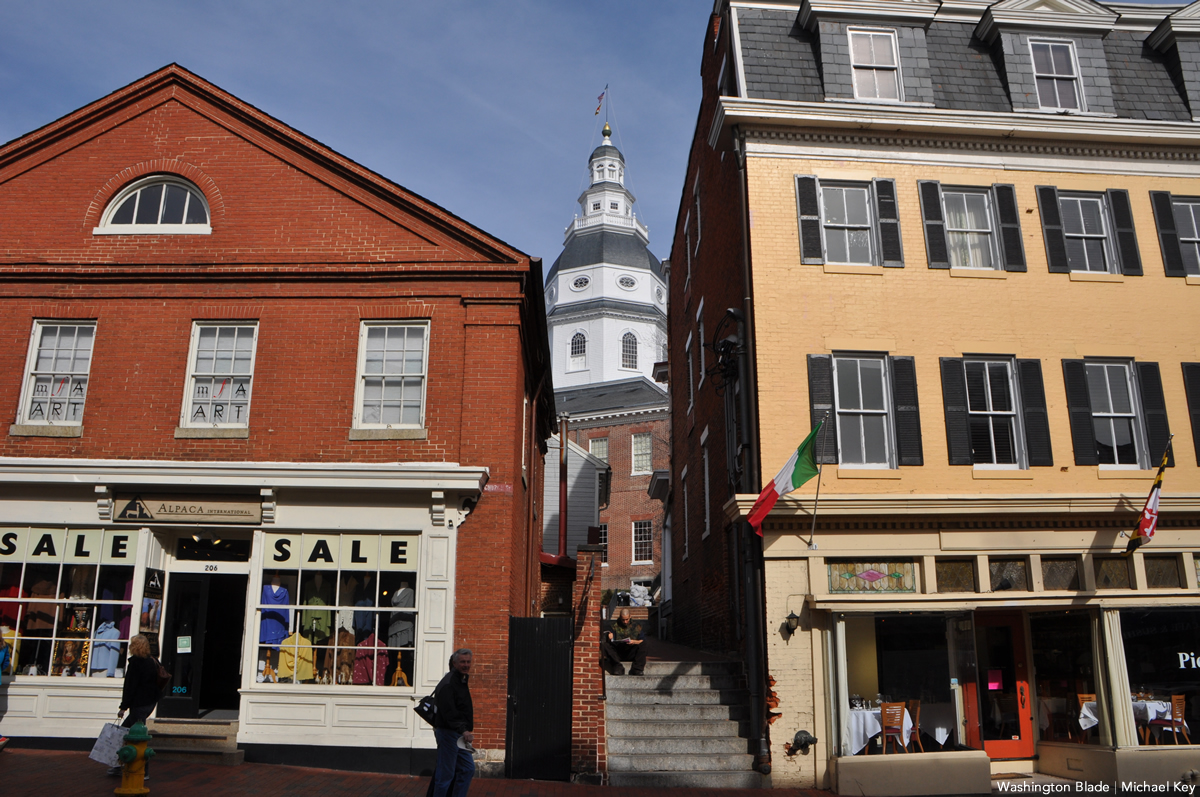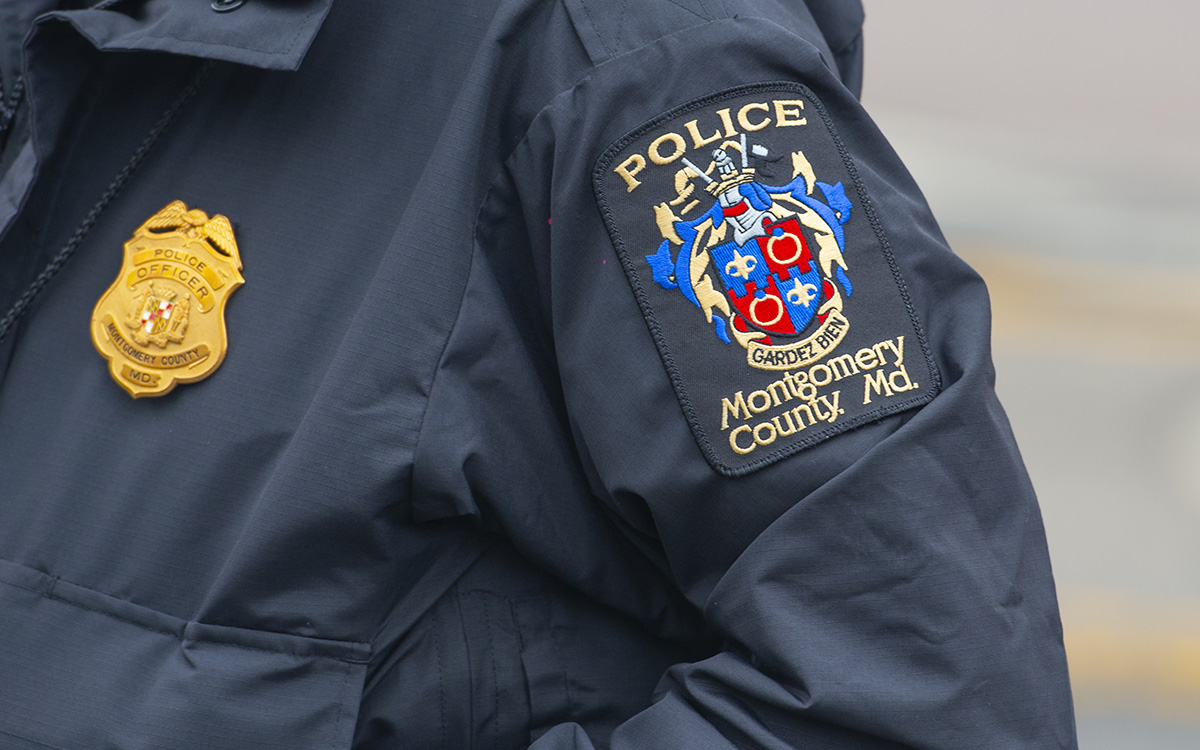Maryland
Md. House committee kills bill to ban transgender kids from sports teams
State Del. Kathy Szeliga (R-Baltimore County) introduced HB 47

A Maryland House of Delegates committee on Thursday killed a bill that would have barred transgender children from joining school sports teams consistent with their gender identity.
State Del. Kathy Szeliga (R-Baltimore County) introduced House Bill 47, which is also called the Fairness in Girls’ Sports Act. More than a dozen other Republican lawmakers co-sponsored the measure.
The House Ways and Means Committee on Wednesday held a hearing on HB 47. State Dels. Joe Vogel (D-Montgomery County) and Kris Fair (D-Frederick County), who are both gay, are among the committee members who voted to kill the measure.
“Yesterday, my committee heard testimony on the Save Women’s Sports Act to ban transgender children from playing in high school sports,” said Vogel on his X account after the vote.
“Just now I moved unfavorable on the bill and the majority of my colleagues joined me in voting it down,” he added. “The bill is dead.”
Yesterday, my committee heard testimony on the Save Women’s Sports Act to ban transgender children from playing in high school sports.
Just now I moved unfavorable on the bill and the majority of my colleagues joined me in voting it down.
The bill is dead.
— Joe Vogel (@JoeVogel_) February 16, 2023
The Senate Education, Energy and the Environment Committee on Feb. 7 is scheduled to hold a hearing on an identical bill, Senate Bill 381, that state Sen. Mary Beth Carozza (R-Somerset, Worcester and Wicomico Counties) introduced in the Maryland Senate.
The House Ways and Means Committee in 2022 killed the Save Women’s Sports Act that Szeliga introduced during that year’s legislative session.
Maryland
Health care for Marylanders with HIV is facing huge cuts this summer
Providers poised to lose three-quarters of funding

BY MEREDITH COHN | By the end of June, health care providers in Maryland will lose nearly three-quarters of the funding they use to find and treat thousands of people with HIV.
Advocates and providers say they had been warned there would be less money by the Maryland Department of Health, but were stunned at the size of the drop — from about $17.9 million this fiscal year to $5.3 million the next. The deep cuts are less than three months away.
The rest of this article can be read on the Baltimore Banner’s website.

GAITHERSBURG, Md. — Maryland state Del. Joe Vogel (D-Montgomery County) on Friday held a “Big Gay Canvass Kickoff” event at his congressional campaign’s headquarters.
LGBTQ+ Victory Fund Vice President of Outreach and Engagement Marty Rouse and John Klenert, a member of the DC Vote and Victory Fund Campaign board of directors, are among those who participated alongside members of Equality PAC. Vogel spoke before Rouse, Klenert and others canvassed for votes in the area.
“Joe brings a fresh new perspective to politics,” said Gabri Kurtzer-Ellenbogen, deputy field director for Vogel’s campaign.
Vogel, 27, is among the Democrats running for Congressman David Trone’s seat.
Trone last May announced his bid to succeed retiring U.S. Sen. Ben Cardin (D-Md.) in the U.S. Senate.
The Democratic primary is on May 14. Vogel would be the first Latino, the first gay man and first Gen Zer elected to Congress from Maryland if he were to win in November.
“We need a new generation of leadership with new perspectives, new ideas, and the courage to actually deliver for our communities if we want things to get better in this country,” Vogel told the Washington Blade last month during an interview in D.C.
Maryland
Montgomery County police chief discusses arrest of trans student charged with planned school shooting
County executive tells news conference student’s trans identity is irrelevant to criminal charge

Montgomery County, Md., Police Chief Marcus Jones joined other county and law enforcement officials at a news conference on Friday, April 19, to provide details of the police investigation and arrest of an 18-year-old high school student charged two days earlier with threats of mass violence based on information that he allegedly planed a mass shooting at the high school and elementary school he attended in Rockville, Md.
In charging documents and in a press release issued on April 18, Montgomery County Police identified the arrested student as “Andrea Ye, of Rockville, whose preferred name is Alex Ye.”
One of the charging documents states that a friend of Ye, who police say came forward as a witness who played a crucial role in alerting authorities to Ye’s threats of a school shooting, noted that Ye told the witness that Ye identified as the transgender student he wrote about as a character in a 129-page manifesto outlining plans for a school shooting. Police have said Ye told them the manifesto was a fictional story he planned to publish.
At the news conference on Friday, Police Chief Jones and other law enforcement officials, including an FBI official and Montgomery County Executive Marc Elrich, referred to the student as Alex Ye and Mr. Ye. None of the officials raised the issue of whether Ye identified as a transgender man, seven though one of the police documents identifies Ye as a “biological female.”
County Executive Elrich appeared to express the views of the public officials at the news conference when one of the media reporters, during a question-and-answer period, asked Elrich why he and the others who spoke at the news conferment failed to “admit that this individual was transgender.”
“Because it’s not a lead,” Elrich replied, asking if the press and law enforcement authorities should disclose that someone arrested for murder is “a white Christian male who’s heterosexual.” Elrich stated, “No, you don’t – You never publish somebody’s sexual orientation when we talk about this. Why you are focusing on this being a transgender is beyond me. It’s not a news story. It is not a crime to be transgender.”
The reporter attempted to respond but was cut off by the press conference moderator, who called on someone else to ask the next question.
In his remarks at the press conference Chief Jones praised the so far unidentified witness who was the first to alert authorities about Ye’s manifesto appearing to make threats of a mass school shooting.
“Now, this is a situation that highlights the critical importance of vigilance and community involvement in preventing potential tragedies,” Jones said. “I commend the collaborative efforts of the Montgomery County Police Department, the Federal Bureau of Investigation, the Rockville City Police Department, and the Montgomery County Public Schools, as well as Montgomery County Health and Human Services,” he told the gathering.
“Thanks to their swift action and cooperation a potentially catastrophic event was prevented,” Jones said.
Jones pointed out that during the current school year, police have received reports of 140 threats to the public schools in Montgomery County. He said after a thorough investigation, none of them rose to the level where an arrest was made. Instead, police and school officials took steps to arrange for the student making the threats and their parents to take remedial action, including providing mental health services.
“But this case is different,” Jones said. “This case is entirely different that takes it to a different level. It was a concerned witness who brought this matter to light by rereporting the suspect’s manifesto to the authorities. This underscores the value of community engagement and the ‘see something say something’ approach,” he said.
Jones mentioned at the press conference that Ye was being held without bond since the time of his arrest but was scheduled to appear in court for a bond hearing on Friday shortly after the press conference took place to determine whether he should be released while awaiting trial or continue to be held.
In his manifesto obtained by police, Ye writes about committing a school shooting, and strategizes how to carry out the act. Ye also contemplates targeting an elementary school and says that he wants to be famous.
In charging documents reported on by WJLA 7 and WBAL 11, the 129-page document, which Ye has referred to as a book of fiction, included writings that said, in part:
“I want to shoot up a school. I’ve been preparing for months. The gun is an AR-15. This gun is going to change lives tomorrow … As I walk through the hallways, I cherry pick the classrooms that are the easiest targets. I need to figure out how to sneak the gun in. I have contemplated making bombs. The instructions to make them are surprisingly available online. I have also considered shooting up my former elementary school because little kids make easier targets. High school’s the best target; I’m the most familiar with the layout. I pace around my room like an evil mastermind. I’ve put so much effort into this. My ultimate goal would be to set the world record for the most amount of kills in a shooting. If I have time, I’ll try to decapitate my victims with a knife to turn the injuries into deaths.”
-

 State Department4 days ago
State Department4 days agoState Department releases annual human rights report
-

 District of Columbia2 days ago
District of Columbia2 days agoCatching up with the asexuals and aromantics of D.C.
-

 South America2 days ago
South America2 days agoArgentina government dismisses transgender public sector employees
-

 Politics5 days ago
Politics5 days agoSmithsonian staff concerned about future of LGBTQ programming amid GOP scrutiny











